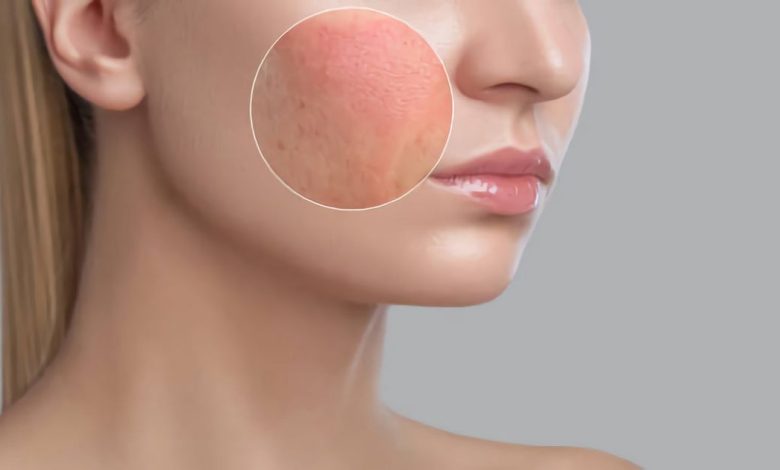Erythema: what is this, causes, symptoms, diagnostics, treatment, prevention

Skin blushing/flushing; Blushing; Flushing; Red face
What is skin redness?
Redness of the skin is a common symptom of anxiety and embarrassment., which causes redness of the face, neck and chest. This is a natural reaction to feelings of embarrassment or anxiety., but it can also be a sign of a more serious underlying condition.
Skin redness can be both physical, as well as emotional, and the duration and intensity can vary from person to person.
Causes of reddening of the skin
Skin redness can be caused by many factors., including stress., concern, embarrassment, hormonal changes, certain medicines and certain diseases. Stress and anxiety can lead to redness due to the body's "fight or flight" response.. This reaction causes the body to release hormones., like adrenaline, which can lead to physical reactions, such as redness. Other hormones, such as cortisol, can also cause skin redness. Hormonal changes during puberty can also lead to reddening of the skin..
Some medicines may cause redness of the skin as a side effect.. These include medications, used to treat high blood pressure, heart disease and allergies. In some cases, redness of the skin may be caused by an underlying medical condition.. This includes conditions, like rosacea, autoimmune disease, causing redness and inflammation of the face, and hyperhidrosis, state, causing excessive sweating.
Skin redness symptoms
The most common symptom of skin redness is facial flushing., neck and chest. In some cases, the redness may spread to other parts of the body., like hands, back and legs. People, who blush, may also feel hot or red, and redness may persist for minutes or even hours.
When to contact a healthcare professional
It is important to see a doctor, if redness of the skin is frequent, severe or accompanied by other symptoms. These symptoms may include headaches, chest pain, dizziness or shortness of breath. A doctor can help determine the underlying cause of the redness and prescribe treatment if necessary..
Diagnosis of reddening of the skin
To diagnose skin redness, the doctor will perform a physical examination and ask questions about the person's medical history. The doctor may also order tests, such as a blood test or an MRI, to determine, does the redness cause the underlying disease.
Skin redness treatment
If redness of the skin is caused by stress, anxiety or embarrassment, your doctor may recommend relaxation techniques, such as yoga, breathing exercises or cognitive behavioral therapy. If redness of the skin is caused by an underlying disease, the doctor may prescribe medications or recommend certain lifestyle changes.
Home treatment for redness of the skin
There are several home remedies, which can help reduce the effect of skin redness. These include avoiding such triggers, like stress, anxiety and embarrassment; practice relaxation techniques; and breathe deeply, to help calm the body. Taking a cool shower or bath can also help reduce redness..
Prevention of reddening of the skin
The best way to prevent reddening of the skin is to reduce stress and anxiety levels.. This can be achieved, applying relaxation techniques and avoiding stress triggers. Regular exercise and a healthy diet can also help reduce the effect of redness.. Using sunscreen outdoors can help protect your skin from the sun's rays., which can increase redness of the skin.
Used sources and literature
Dinulos JGH. Acne, rosacea, and related disorders. In: Dinulos JGH, ed. Habif’s Clinical Dermatology. 7th ed. Philadelphia, PA: Elsevier; 2021:chap 7.
James WD, Elston DM, Treat JR, Rosenbach MA, Neuhaus IM. Erythema and urticaria. In: James WD, Elston DM, Treat JR, Rosenbach MA, Neuhaus IM, eds. Andrews’ Diseases of the Skin. 13th ed. Philadelphia, PA: Elsevier; 2020:chap 7.
